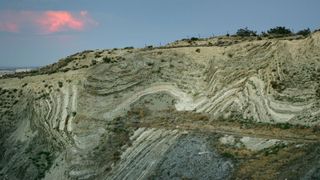Earthquakes
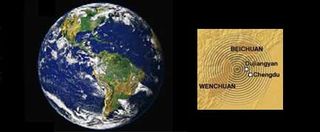
Earthquakes are the result of plate tectonics, or shifting plates in the crust of Earth, and quakes occur when the frictional stress of gliding plate boundaries builds and causes failure at a fault line. In an earthquake, elastic strain energy is released and waves radiate, shaking the ground. Scientists can predict where major temblors might occur in a general sense, but research does not yet allow forecasts for specific locations or accurate predictions of timing. Major earthquakes, some generating tsunamis, have leveled entire cities and affected whole countries. Relatively minor earthquakes can also be induced, or caused by human activity, including extraction of minerals from Earth and the collapse of large buildings.
Latest about Earthquakes
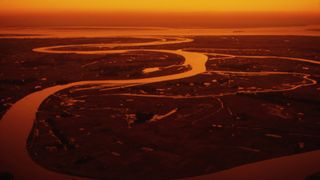
Huge earthquake 2,500 years ago rerouted the Ganges River, study suggests
By Sascha Pare published
A new study suggests an earthquake of estimated magnitude 7.5 or 8 shook the Indian subcontinent 2,500 years ago, changing the course of the Ganges.

Why do earthquakes happen far away from plate boundaries?
By Alice Sun published
It's well known that earthquakes can rock fault-filled places like the U.S. West Coast. But why do earthquakes happen in the middle of tectonic plates?
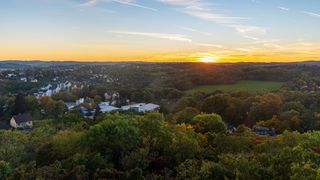
Odd earthquake swarm in Central Europe hints at magma bubbling below the surface
By Stephanie Pappas published
An odd earthquake swarm has struck the region between the Czech Republic and Germany, far from any tectonic plate boundary.
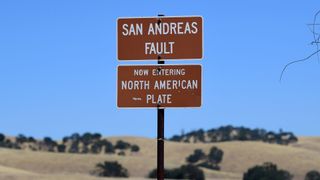
Part of the San Andreas fault may be gearing up for an earthquake
By Stephanie Pappas published
The Parkfield section of the San Andreas fault is sending mixed messages before a time of expected increased seismic risk.
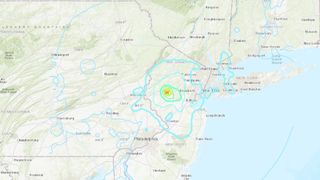
Rare magnitude 4.8 and 3.8 earthquakes rock Northeast, including Greater New York area
By Laura Geggel last updated
Magnitude 4.8 and 3.8 earthquakes struck New Jersey and rocked the Northeast on Friday (April 5).
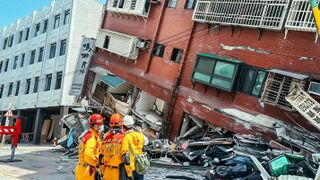
Taiwan earthquake: 9 dead and dozens trapped after strongest quake in 25 years
By Ben Turner published
The earthquake, which struck on Wednesday morning, has killed nine people, injured more than 900 and left dozens trapped in underground tunnels.

2,000 earthquakes in 1 day off Canada coast suggest the ocean floor is ripping apart, scientists say
By Stephanie Pappas published
Record earthquake activity off the coast of Vancouver Island hints at the birth of new oceanic crust.
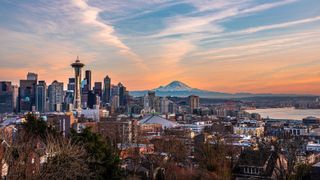
Nearly 75% of the US is at risk from damaging earthquakes, new map reveals
By Ben Turner published
A new, ultra-detailed map shows that 75% of U.S. states are at risk of damaging earthquakes, but some are at far more risk than others.
Sign up for the Live Science daily newsletter now
Get the world’s most fascinating discoveries delivered straight to your inbox.

